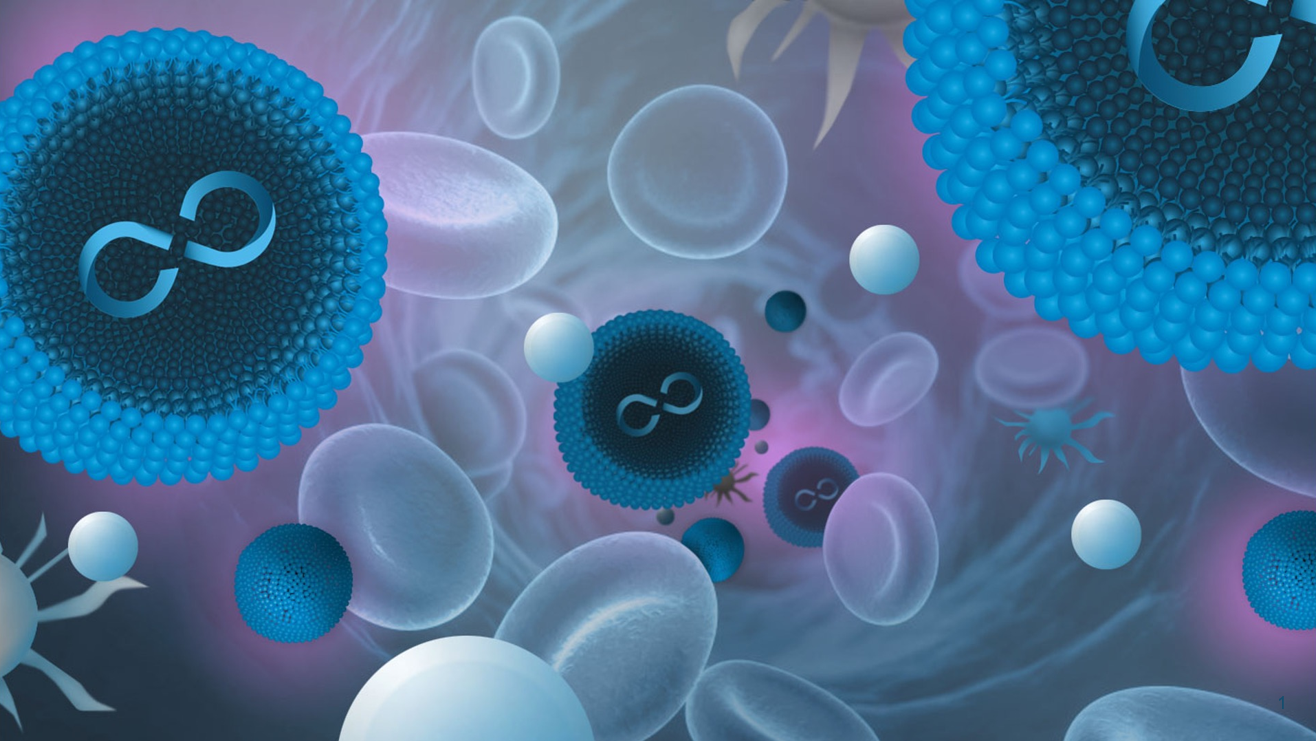
The COVID-19 pandemic highlighted the need for fast-produced and adaptable vaccines that could be equally distributed around the world. Developing an efficient mRNA vaccine that is effective, thermostable, and has fewer side effects strongly depends on lipid nanoparticles (LNPs) which preserve and deliver mRNA to cells. Lipid nanoparticles appear to be the sole solution to global health issues, and that is why well-known biopharma companies and startups are currently focusing exactly on this.
Messenger RNA (mRNA) vaccines gained worldwide recognition during the COVID-19 pandemic. These vaccines use mRNA that teaches body cells to create a protein that triggers an immune response. There is one major downside to mRNA - it is fragile and quickly falls apart. We, therefore, need lipid nanoparticles, tiny balls of fat that preserve mRNA and deliver it to the body cells. In the case of COVID-19 vaccines, once mRNA is released into the cells, the process of making the spike protein begins, and the LNP's work is complete.
It might sound easy, but it is not. COVID-19 mRNA vaccines widely used worldwide, such as Comirnaty by Pfizer/BioNTech and Spikevax by Moderna, are proven effective and safe. There are, however, some downsides to current mRNA technologies.
The existing mRNA vaccines against coronavirus are stored in extremely low temperatures - between -90°C and -15°C for different manufacturers. Consequently, the transportation and distribution of the mRNA vaccines is costly and limited in time and transportation abilities. The COVAX initiative, for instance, was formed by the Coalition for Epidemic Preparedness Innovations (CEPI), Gavi and the World Health Organization (WHO), alongside key delivery partner UNICEF, in order to overcome logistical delivery obstacles and assist with providing COVID-19 vaccines to lower-income communities worldwide. However, COVAX and similar initiatives are not sustainable, while the cold chain for COVID-19 vaccines requires significant financial resources. Vaccines can become more economic and accessible, making their distribution more efficient.
Another issue with today's COVID-19 mRNA vaccines are the common side effects such as inflammation, fever, and aches. These side effects are caused by lipids which are not fully biodegradable, therefore not disintegrating completely in the body after their work is done. The other challenge of the LNP development is the constant need to adapt to new variants while entrapping bigger payloads to be more efficient.
What can be done to advance LNP technology and the future of mRNA vaccines? As a matter of fact, a lot of scientists are already working on this innovation.
AexeRNA Therapeutics, co-founded by Dr. Drew Weissman, whose research paved the way for the mRNA vaccines, has a proprietary ionizable lipid library. This gives the ability to quickly select the optimal lipids for immunization or therapeutic application. It means that the technology can become more rapidly adjustable to the new variants or applied to other diseases.
The company's research exemplifies some promising results in mRNA delivery efficiency with controlled distribution to various organs. AexeRNA's LNP platform is also addressing side effects by lowering toxicity of the system. Their research is dealing with logistics issues by making the vaccine easier to store and transport.
Dr. Pieter Cullis, another world-renowned scientist, has been working on LNP technology for decades. He co-founded and served on the board of more than ten companies, one of which is NanoVation Therapeutics. This company focuses on personalized gene therapeutics. Their pre-clinical studies are focused on the efficacy and biodistribution of LNPs making their research valuable for developing mRNA vaccines.
The other company co-founded by Cullis and led by Dr. Thomas Madden, Acuitas Therapeutics, has an agreement with Pfizer/BioNTech to use its proprietary lipid nanoparticle technology in the development of COVID-19 vaccines. Moreover, the same LNP components can be used in different mRNA vaccines, simplifying their creation for future variants and other diseases.
Last but not least is the revolutionary biopharma startup NeoVac. Using novel lipid nanoparticle technology developed by the company's co-founder Professor Dan Peer at his Lab at Tel Aviv University, the company aims to overcome existing challenges with the LNPs technology. NeoVac's in-vivo studies showed fewer side effects due to the fully biodegradable lipids that compose the LNPs. NeoVac's LNPs have no effect on the liver in fatty liver disease as compared to significant damage by some other vaccines. In addition, their delivery system entraps triple the currently available RNA load and can address multiple variants with multiple payloads simultaneously. This results in higher effectiveness without increasing the dose.
NeoVac's main achievement is creating and increasing thermal stability. The company's novel LNPs show thermostability at regular refrigerator temperatures (+4°C) for at least 12 months. The vaccine is thermostable at room temperature for one month, which can lead to the possibility of more widespread distribution and usage. NeoVac's clinical trial activities are overseen by Prof. Sir Adrian Hill, who leads the Jenner Institute at Oxford University. First-in-human trials will commence by the end of 2022, and we will definitely be following.
mRNA has proven effective during pandemics and is promising in preventing and treating many other diseases, including cancer. The development of LNPs is crucial for the success of mRNA technologies. The future of global health is in the hands of biopharma companies that are on their way to creating mRNA vaccines with a lower cost of storage and transportation, fewer adverse effects, and faster response to the new variants.
* This is a contributed article and this content does not necessarily represent the views of techtimes.com








